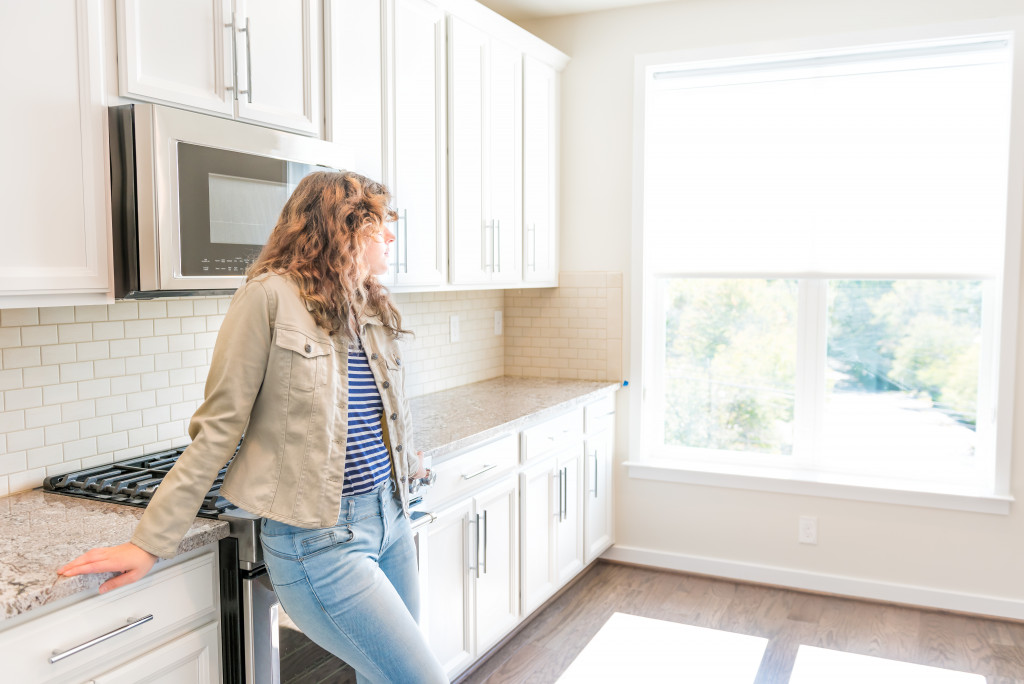It’s no secret that keeping a home in top condition requires regular maintenance. However, what may be less well-known is that even newly renovated homes need regular care to keep them looking their best. Many homeowners only think to care for a renovated area when it begins to show wear and tear, but by then, it may be too late to prevent severe damage.
Here are some tips for maintaining your home after you’ve put in the work to renovate it.
1. Keep up with regular cleaning.
Practicing regular cleaning is the simplest way to keep your renovated home looking great. This means dusting, vacuuming, and mopping weekly and cleaning bathrooms and kitchens more frequently. Staying on top of the dirt will prevent it from building up and making your home look dull and neglected.
Many people neglect to clean areas that are out of sight, but this is a mistake. Dust and dirt can accumulate on top of cabinets, behind appliances, and on top of high shelves. Make sure to clean these areas regularly, or hire a professional cleaner to do it for you.
It would be best if you also were sure to clean your home’s exterior, including the gutters, windows, and doors. Pressure washing your home’s siding will also help keep it looking new.
2. Inspect your home regularly for damage.
Catching damage early is key to preventing costly repairs down the road. Inspect your home regularly, inside and out, for signs of wear and tear. Look for cracks in the foundation, peeling paint, loose shingles, and cracked windows. These are all signs that your home needs repair.
If you notice any damage, fix it as soon as possible. Ignoring damage will only make it worse, and you may have to replace major components of your home, like the roof or foundation. Some types of damage, like water damage, can also lead to health problems if left unaddressed.
You can choose to fix the damage yourself or hire a professional, depending on the severity of the problem. Regardless, ensure to take care of any damage as soon as possible.
3. Be proactive about appliance repair and replacement.
Your home appliances are also subject to wear and tear and will eventually need to be repaired or replaced. Be proactive about appliance maintenance, and you’ll save yourself money and headache in the long run.
Make sure to clean your appliances regularly, according to the manufacturer’s instructions. This will help them last longer and run more efficiently. It would be best if you also had them serviced regularly by professional repair services like Best Home Appliance. They can help identify any potential problems before they become serious.
Replacing appliances before they break down completely is also a good idea. Many appliance manufacturers offer extended warranties that cover the cost of replacement parts and labor. Taking advantage of these warranties can save you a lot of money in the long run.

4. Practice preventative pest control.
Pests can cause severe damage to your home and can be challenging to get rid of once they’ve taken up residence. That’s why it’s important to practice preventative pest control. Some simple steps, like sealing up cracks and openings, can go a long way towards keeping pests out.
It would be best if you also were sure to clean up any food or water sources that might attract pests. This includes crumbs, leaks, and pet food. If you have a garden, keep it well-maintained, as overgrown gardens can provide shelter for pests.
Finally, it would be best to regularly inspect your home for signs of pests, such as droppings or chewing damage. If you find pests, call a professional exterminator as soon as possible. They’ll be able to get rid of the problems quickly and prevent them from returning.
5. Be careful when using harsh cleaning products.
While cleaning your home regularly is essential, you should be careful when using harsh cleaning products. Many cleaners contain chemicals that damage your home’s finishes, like paint, tile, and wood. When using cleaners, always follow the manufacturer’s instructions.
You should also ventilate the area well to reduce your exposure to fumes. Some common household cleaners, like vinegar and baking soda, can be used to clean your home safely. They’re just as effective as harsh cleaners but won’t damage your home. You can find natural cleaning recipes online or at your local library.
Maintaining a newly renovated home can be challenging, but it’s well worth the effort. By following these tips, you can keep your home in top condition for years. If you have questions about home maintenance, feel free to ask a professional. They’ll be able to give you tailored advice for your specific situation and needs.
